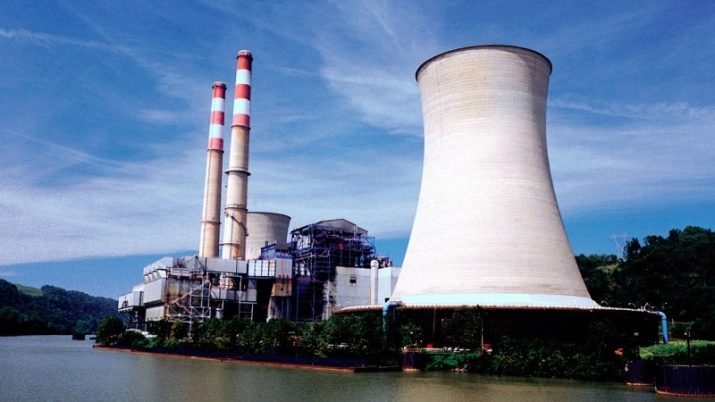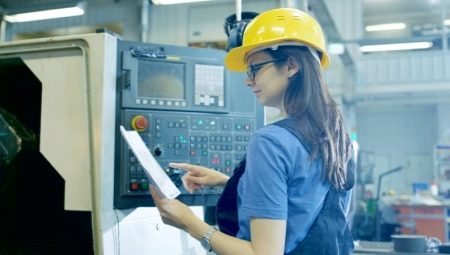Traditionally, it is customary to subdivide all people into 2 large groups: humanities and people with a technical mentality. The most typical profession for the latter is a mechanical engineer. Today in our material we will consider the features, pros and cons of this profession, and also learn about what is the responsibility of highly qualified specialists.
Features
Before choosing this specialty and undergoing specialized training, it is important to carefully study the description of the profession. So, A mechanical engineer is the person who designs, constructs, and operates mechanical equipment. In order to become as successful as possible in this profession, you need to love and understand such disciplines as physics and mathematics.
Specialists in the mechanical engineering industry are involved in the creation of material wealth, they work in almost all areas of human life (for example, in the field of electronics or in the production of rockets for spacewalk).
To perform work tasks, a mechanical engineer must possess deep theoretical knowledge, and also be able to apply them in practice.
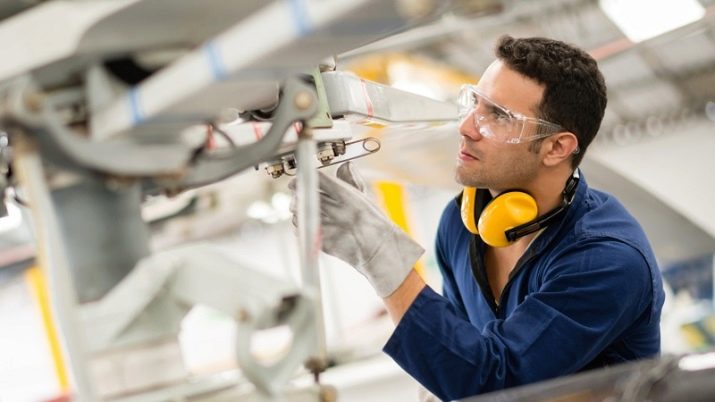
Today, a number of highly specialized mechanical engineers can be distinguished, for example:
- electrician;
- specialist in automation and mechanization of production processes;
- serving vehicles;
- mechanical designer;
- machining engineer;
- Leading mechanical engineer and many others.
All these specialists carry out their professional activities strictly in accordance with such a document as a professional standard - it regulates all the features and principles of work.
Most often, mechanical engineers specialize in one of 3 industries. So, a specialist can be a designer, technologist or tester. Consider these narrow specializations in more detail.
- Constructor - This is such a specialist who, on a daily basis, in the course of fulfilling his work tasks, designs and constructs a variety of machines and apparatuses. In addition, his direct duties include the comprehensive mechanization of all production.
- Technologists They are engaged in the organization of processes for installation and debugging of machines and apparatuses that the designer created. Among other things, a specialist develops and organizes technological processes.
- Tester checks created and debugged cars. He is also responsible for the operation of the equipment and creates the best conditions for their correct functioning.
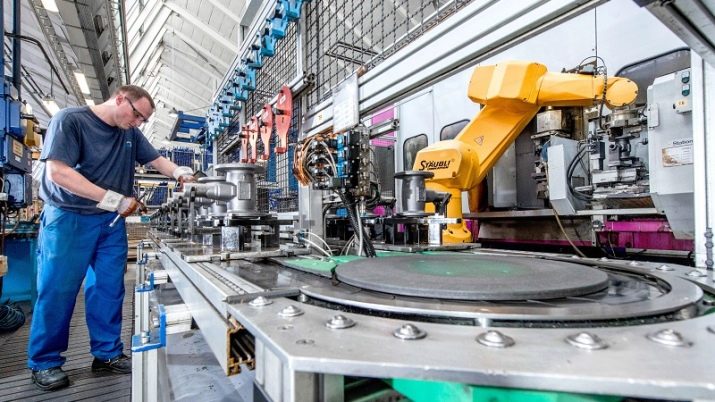
Regardless of the specific specialization, the work of a mechanical engineer, like any other activity, is characterized by its advantages and disadvantages.
So, among the advantages, the following features should be distinguished:
- high demand in the labor market (accordingly, you definitely will not be left without a workplace);
- a large number of diverse specializations (thanks to which you will be able to choose the branch of activity that arouses your greatest interest);
- high salary (despite the fact that each of us seeks to get that profession that will bring pleasure, the main function that any work performs is the material support of our life).
Among the shortcomings of the specialty is usually distinguished:
- high risk of injury (this is associated with work in production with large-sized machines and mechanisms);
- harmful working conditions (Mechanical engineers very often experience the negative effects of noise and vibration).
Thus, virtues outweigh disadvantages. However, it is important to evaluate in advance all the characteristics, both positive and negative.
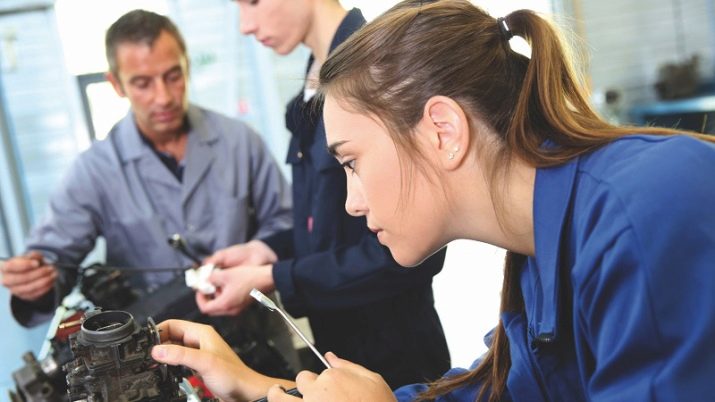
Responsibilities
The unified tariff-qualification reference book of jobs and professions of workers (or ETKS) contains a description of the professional activities of a mechanical engineer. In addition, the job responsibilities and functions that a person is engaged in on a daily basis in this position are prescribed in a special document - job description. Before you officially get a job at the enterprise, you should carefully study these documents in order to clearly understand the scope of the proposed work, as well as the requirements that the employer puts forward to you. Soberly assess your opportunities before accepting a job offer.
The responsibilities of a mechanical engineer include:
- verification of specialized technical documentation;
- development of a plan for the placement of technical equipment;
- the correct organization of jobs in the enterprise;
- conducting the necessary calculations regarding production capacities and the permissible load of existing equipment;
- control of technological processes;
- checking the correctness of welding and assembly of equipment;
- constant monitoring of equipment operation;
- identification of malfunctions, breakdowns and marriage;
- diagnostics and technical inspection of equipment;
- the implementation of repair work in relation to mechanisms and apparatuses;
- creation of new equipment;
- development of the most economically efficient ways to use equipment.
It should be borne in mind that This list of responsibilities is not universal or final.. It can be modified or supplemented depending on the specific place of work, your specialization, as well as on the wishes of the employer.Thus, you need to clarify in advance the terms of reference for employment at each new job (for example, this can be done during a personal interview), as well as be prepared to adapt to new conditions.
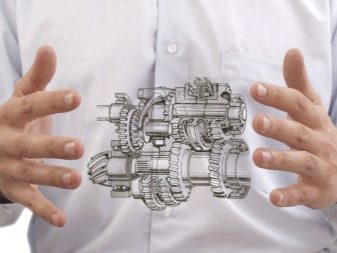
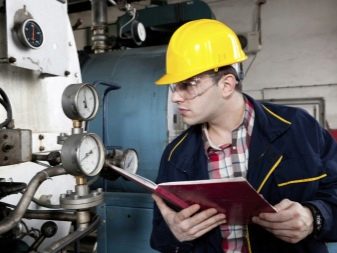
Knowledge and skills
In order for a mechanical engineer to be able to carry out his work tasks as efficiently and correctly as possible, he must know a lot and be able to. So, the following characteristics can be attributed to the most important professional and personal qualities of a specialist:
- knowledge of specialized programs such as AutoCAD, SolidWorks, CorelDraw, SCAD, KOMPAS-3D;
- high theoretical background;
- knowledge of drawing and descriptive geometry;
- knowledge of materials science;
- developed memory and attention;
- ability to apply theoretically knowledge in practice;
- knowledge of automation and automation of production processes;
- endurance;
- physical health;
- analytic mind;
- logical thinking;
- persistence;
- purposefulness.
Thus, we can conclude that in order to be a successful and sought-after specialist, it is not enough to possess only professional knowledge, skills and abilities.
It is important to combine a number of psychological qualities and personal characteristics. Only in this case you can achieve maximum success in the profession.
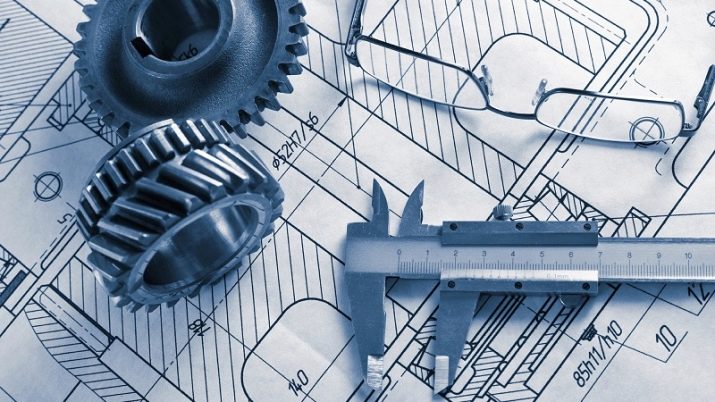
Education
In order to become a mechanical engineer, you need to get the appropriate qualifications. For this you need to finish institution of higher education in a related specialty. Depending on what level of higher education you want to receive, the learning process can last from 4 to 6 years (sometimes even more).
After you have decided to obtain the specialty of a mechanical engineer, you need to do a selection of a university. It is recommended that you pay attention to prestigious institutions with the appropriate faculty. So, for example, many employers prefer those specialists who studied in the capital. It is believed that they receive a high-quality theoretical base, as well as undergo high-quality practical training. Thus, a young specialist who comes to work for an enterprise can independently carry out his functions, without outside help. After you have decided on a particular university, you need to visit the selection committee and learn in detail what subjects you need to take for admission. Keep in mind that the competition of applicants is large enough, so you need to carefully prepare.
However, even after successfully entering the university, you should not relax. Pay more attention to your studies and get the highest marks. - the whole point is that some employers ask applicants for the position of mechanical engineer an extract from the grade book or from a diploma. At the same time, those specialists who received the highest scores will have a greater chance of getting a job. Also, important attention should be paid to internships and practices, which are an integral part of obtaining specialized education. Upon completion of training, you can begin to look for work. However, even after that Do not forget to constantly develop and improve: attend specialized seminars, conferences and master classes to keep abreast of all the latest trends.
Important! For some employers (primarily for small enterprises), a diploma from a college, institute or college is enough. In order to clarify this information, carefully study the job description.

Where to work?
A mechanical engineer can apply his professional knowledge in almost any area of human life: for example, a specialist can be associated with automobiles and the automotive industry, work in production, be a ship specialist, and much more. Generally distinguish several of the most popular areas of activity for such specialists:
- construction;
- agriculture and the agro-industrial complex;
- mining industry;
- the science;
- nuclear power.
It is important to note the fact that regardless of the specific field of activity, specialists receive a high salary (above average). So, material remuneration for the work of mechanical engineers on the territory of our state varies in the range from 30,000 to 90,000 rubles. Moreover, experienced and highly qualified specialists can get even more.
After graduation, it is best to look for and apply for starting (or initial) positions. Thus, you will be able to gain experience, as well as put your theoretical knowledge into practice. Over time, this will help you move up the career ladder.
